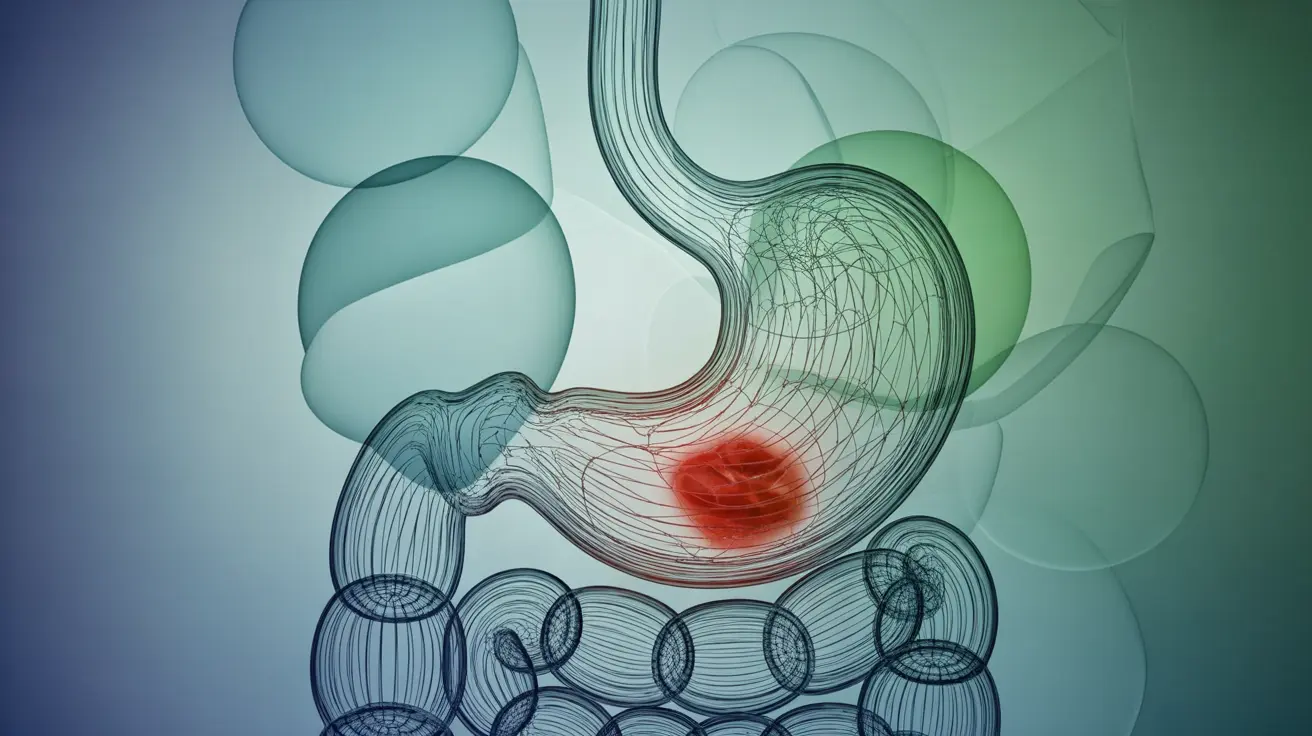If you've ever experienced a burning sensation in your chest during particularly stressful periods, you might have wondered about the connection between stress and acid reflux. While the relationship between these two conditions is complex, understanding how they interact can help you better manage your symptoms and improve your overall digestive health.
This comprehensive guide explores the intricate relationship between stress and acid reflux, offering evidence-based insights into how psychological stress can impact your digestive system and what you can do about it.
How Stress Affects Your Digestive System
Stress triggers a cascade of physiological responses in your body that can directly impact your digestive system. When you're stressed, your body enters a "fight or flight" mode, which can alter various digestive processes, including:
- Changes in stomach acid production
- Altered muscle tension in the digestive tract
- Decreased blood flow to the digestive system
- Changes in the function of the lower esophageal sphincter (LES)
The Impact on Stomach Acid Production
During periods of stress, your body may either increase or decrease stomach acid production, depending on how you respond to stress. Some people experience increased acid production, while others might see a decrease. Both scenarios can potentially trigger or worsen acid reflux symptoms.
The Stress-Acid Reflux Connection
While stress alone may not directly cause acid reflux, it can certainly exacerbate existing conditions and make symptoms more noticeable. Stress can affect acid reflux through several mechanisms:
Physical Changes
Stress can lead to physical changes that promote acid reflux, including:
- Increased muscle tension around the digestive tract
- Changes in eating patterns and food choices
- Disrupted sleep patterns
- Altered digestive motility
Behavioral Changes
During stressful periods, people often adopt behaviors that can trigger or worsen acid reflux:
- Eating larger portions
- Consuming more trigger foods
- Increased caffeine intake
- Irregular eating schedules
- Poor sleep habits
Managing Stress-Related Acid Reflux
Taking a comprehensive approach to managing both stress and acid reflux can help reduce symptoms and improve overall well-being. Consider implementing these strategies:
Lifestyle Modifications
Making certain lifestyle changes can help manage both stress and acid reflux:
- Regular exercise
- Maintaining a consistent sleep schedule
- Practicing mindful eating
- Avoiding meals close to bedtime
- Elevating the head of your bed
Dietary Considerations
Pay special attention to your diet during stressful periods:
- Avoid trigger foods
- Eat smaller, more frequent meals
- Limit caffeine and alcohol intake
- Stay hydrated with water
- Choose foods that help reduce stress and support digestion
Frequently Asked Questions
Can stress directly cause acid reflux or does it only worsen existing symptoms?
While stress typically doesn't directly cause acid reflux, it can significantly worsen existing symptoms and trigger episodes in people who are already prone to acid reflux. Stress can affect various digestive processes that contribute to acid reflux symptoms.
How does stress affect stomach acid production and lower esophageal sphincter function related to acid reflux?
Stress can alter stomach acid production and may cause the lower esophageal sphincter (LES) to relax inappropriately. This combination can lead to increased acid reflux episodes as stomach contents more easily flow back into the esophagus.
What are effective lifestyle and stress management techniques to reduce acid reflux symptoms?
Effective techniques include regular exercise, meditation, deep breathing exercises, maintaining a consistent sleep schedule, and practicing mindful eating. These methods can help manage both stress levels and acid reflux symptoms.
Can anxiety or chronic stress make acid reflux symptoms feel more severe even if acid levels stay the same?
Yes, anxiety and chronic stress can increase sensitivity to acid reflux symptoms, making them feel more severe even if actual acid levels haven't changed. This is due to the complex interaction between stress and pain perception in the body.
What dietary changes can help control acid reflux triggered or worsened by stress?
Beneficial dietary changes include eating smaller, more frequent meals, avoiding trigger foods (such as spicy, fatty, or acidic foods), limiting caffeine and alcohol intake, and maintaining regular meal times. It's also important to avoid eating close to bedtime.




